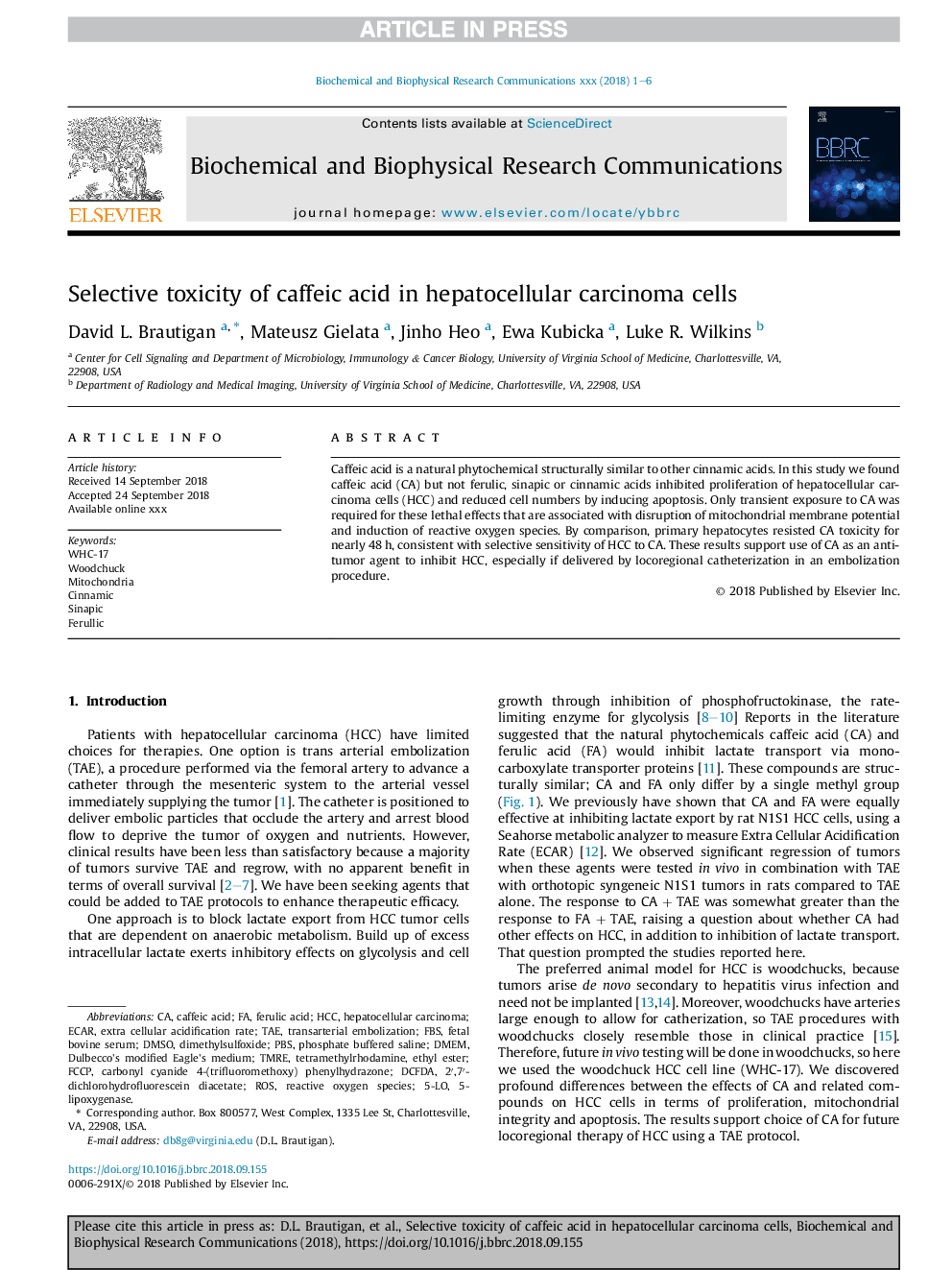| Article ID | Journal | Published Year | Pages | File Type |
|---|---|---|---|---|
| 11988005 | Biochemical and Biophysical Research Communications | 2018 | 6 Pages |
Abstract
Caffeic acid is a natural phytochemical structurally similar to other cinnamic acids. In this study we found caffeic acid (CA) but not ferulic, sinapic or cinnamic acids inhibited proliferation of hepatocellular carcinoma cells (HCC) and reduced cell numbers by inducing apoptosis. Only transient exposure to CA was required for these lethal effects that are associated with disruption of mitochondrial membrane potential and induction of reactive oxygen species. By comparison, primary hepatocytes resisted CA toxicity for nearly 48â¯h, consistent with selective sensitivity of HCC to CA. These results support use of CA as an anti-tumor agent to inhibit HCC, especially if delivered by locoregional catheterization in an embolization procedure.
Keywords
CinnamicDCFDAPBSTMREECARDMEMFBSFCCP5-LO5-LipoxygenaseDMSOHCCDulbecco's modified Eagle's mediumROSTransarterial embolizationTAEDimethylsulfoxidefetal bovine serumFerulic acidPhosphate buffered salineMitochondriaWoodchuckHepatocellular carcinomaCaffeic acidCarbonyl cyanide 4-(trifluoromethoxy) phenylhydrazoneReactive oxygen species
Related Topics
Life Sciences
Biochemistry, Genetics and Molecular Biology
Biochemistry
Authors
David L. Brautigan, Mateusz Gielata, Jinho Heo, Ewa Kubicka, Luke R. Wilkins,
